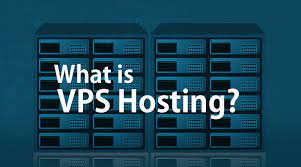What is VPS Server?

A VPS, or Virtual Private Server, is a virtualized server that mimics the functionality of a dedicated server within a shared hosting environment. In simpler terms, it’s a portion of a physical server that has been allocated its own resources (such as CPU, RAM, disk space) and operates its own operating system. This allows users to have more control over their hosting environment compared to shared hosting, without the expense of a dedicated server. Virtual Private Server hosting is commonly used for websites and applications that require more control, customization, and resources than what shared hosting can provide, but don’t necessarily need an entire dedicated server.
Table of Contents
What is Dedicated Server?

A dedicated server is a type of hosting service where an entire physical server is leased to a single client. Unlike shared hosting or Virtual Private Server hosting, where multiple users share resources on the same physical server, a dedicated server provides exclusive access to all the resources (CPU, RAM, disk space, bandwidth) of the server to the client.
Dedicated servers offer several advantages:
- Performance: Since all the resources are dedicated to a single client, there is no sharing, which can lead to better performance and faster loading times for websites and applications.
- Control: Clients have full control over the server environment, including choice of operating system, software installations, and configurations. This level of control is ideal for businesses with specific requirements or customization needs.
- Security: With no other users sharing the server, security risks associated with shared hosting are minimized. Clients have full control over security configurations and can implement stringent security measures to protect their data and applications.
- Scalability: Dedicated servers can be easily scaled up or down to meet changing demands. Clients can upgrade or downgrade server resources based on their requirements, ensuring optimal performance and cost-effectiveness.
However, dedicated servers also have some drawbacks, including higher costs compared to shared hosting or Virtual Private Server hosting, as the client bears the full cost of the server hardware and maintenance. Additionally, managing a dedicated server requires technical expertise or hiring a server administrator, which may not be feasible for all businesses.
What are the pros and cons of VPS vs dedicated hosting?

VPS Hosting :

Pros:
- Cost-Effective: Virtual Private Server hosting is generally more affordable than dedicated hosting, making it suitable for businesses with budget constraints.
- Scalability: VPS hosting allows for easy scalability, enabling users to upgrade or downgrade server resources as needed.
- Isolation: Each Virtual Private Server operates in its own isolated environment, providing better security and performance compared to shared hosting.
- Control: Users have more control over their server environment compared to shared hosting, including root access and choice of software installations.
- Customization: Virtual Private Server hosting allows for customization of server configurations and settings to meet specific requirements.
Cons:
- Resource Limitations: While VPS hosting offers dedicated resources, these resources are still shared among multiple VPS instances on the same physical server, which can lead to performance issues during peak times.
- Less Performance: VPS hosting may not offer the same level of performance as dedicated hosting since resources are shared among multiple VPS instances.
- Technical Knowledge: Managing a VPS requires some level of technical expertise, including server administration skills, which may be challenging for users with limited technical knowledge.
- Dependency on Host Provider: The quality of VPS hosting can vary depending on the hosting provider, and users may experience downtime or performance issues if the provider’s infrastructure is not robust.
Dedicated Hosting :

Pros:
- High Performance: Dedicated hosting provides exclusive access to all server resources, resulting in optimal performance for websites and applications.
- Full Control: Clients have full control over the server environment, including choice of operating system, software configurations, and security settings.
- Security: With no other users sharing the server, dedicated hosting offers enhanced security compared to shared or VPS hosting.
- Scalability: Dedicated servers can be easily scaled up or down to accommodate changing requirements, ensuring optimal performance at all times.
- Customization: Dedicated hosting allows for extensive customization of server configurations and settings to meet specific needs and requirements.
Cons:
- Cost: Dedicated hosting is typically more expensive than VPS hosting, as clients bear the full cost of the server hardware and maintenance.
- Complexity: Managing a dedicated server requires advanced technical knowledge and server administration skills, which may be challenging for users without experience in server management.
- Resource Waste: Since clients lease the entire server, there may be periods of underutilization where resources are not fully utilized, leading to potential waste of resources and higher costs.
- Limited Scalability: While dedicated servers can be scaled up or down, the process may involve downtime and requires additional hardware provisioning, making it less flexible compared to VPS hosting.